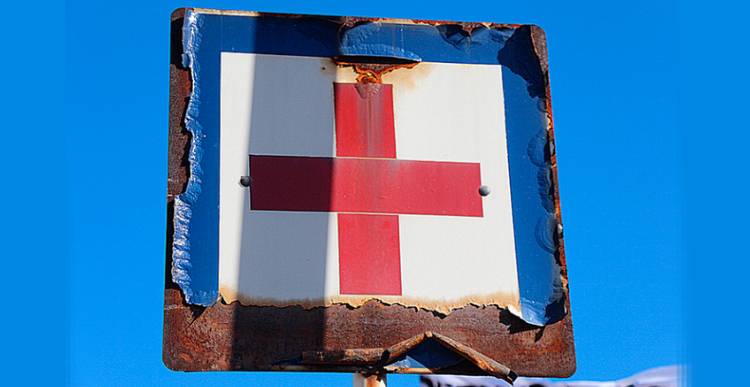The Wolves of Honduras
By Maria Alicia Nuñez, Research Associate at the Council on Hemispheric Affairs
The Honduran Institute of Social Security (IHSS) is currently experiencing the worst financial crisis in its history, facing a $302.5 million USD debt. President Juan Orlando Hernandez ordered an investigation earlier this year, which uncovered the lack of a cohesive administration and a blatant misuse of public funds. Abuses included unjustified salary increases for many employees and purchases that were recorded as high as 500 percent over the items’ real value.[1] Earlier this month, the institute’s ex-director Mario Zelaya, was apprehended along with other former staffers. The investigation made Hondurans wonder how many more governmental agencies are secretly operating under such appalling levels of corruption. Most importantly, this ongoing scandal reveals a profound and disquieting need for major reforms in the field of healthcare and other social services in Honduras.
Public health care plays an essential role in a country where people earn an average of $180 USD a month. The IHSS was created in 1959 to protect workers in the formal sector, but the agency also serves as the public’s main source of public welfare coverage. Employers and employees in the formal sector both pay a fee to the institute, which provides health care services in return. Although the hospitals tend to be located in the larger cities, the IHSS has established facilities in almost every department of the country. The IHSS plays an important role in the Honduran healthcare system, assisting roughly 2 million people a year in a country of 8 million.
However, for the past few years there have been ominous reports of financial misuse. A 2011 article by the local newspaper El Heraldo, noted that 62 percent of the IHSS’ funds landed in employees’ pockets. On the other hand, a mere 12 percent of the budget actually went towards purchasing medicines and 11 percent towards sanitation, the investigation found.[2] In fact, in 2011 the Inter-American Development Bank financed an evaluation that called for the dismissal of approximately 1,800 employees from the 5,200 on the pay roll. This year’s data reveals that there were 6,000 registered employees. That means there was either an increase in employment, instead of a decrease, or that the new list included the names of fake employees. In addition, the report showed that phantom enterprises had been created for the purpose of ransacking the institute’s assets.[3]
With the current shortage of equipment, personnel, and medications in hospitals and pharmacies, Honduras faces a healthcare crisis. Doctors in the public sector staged a protest early in September to denounce the lack of medicines.[4] Doctors are unwilling to operate on patients unless the government provides medicine and equipment to ensure the safety of these procedures. The authorities have threatened doctors who refuse to operate, warning them of the possibility that they could face sanctions.
It is no wonder doctors often go on strike – in August, many claimed that they had not received their pay for three months. In fact, the National Autonomous University paid doctor’s salaries for a few months, but could not cover the total costs indefinitely.[5] Even in the course of last year, there were strikes in which public health practitioners abandoned their stations because they did not receive a salary for 11 months.
This July, the military police intervened at the Mario Catarino Rivas hospital, a leading national health care facility in San Pedro Sula, due to various complaints. A local newspaper revealed that a patient was left unattended and became infested with worms, while still alive.[6] Not only that, but according to reports, it appears as though criminal groups had taken control of the Mario Catarino Rivas.[7] A new commission was established to run the Catarino, but previous experience suggests that these commissions are not necessarily effective.
Rural areas are the most affected by the lack of health care. The majority of advances in treatment have only occurred in populated cities.[8] For example, the capital Tegucigalpa has just inaugurated a new pediatric hospital. On the other hand, half the population does not have access to proper medical attention and one in six never receive any sort of treatment.[9] In addition, 53 percent of the rural population lives under conditions of chronic malnutrition.
Many citizens are unnerved by the IHSS incident, but there is still a glimmer of hope as the current administration shows signs of concern by beginning to detain offenders. In addition, the government offered $42.5 million USD in medicines to reduce the shortage. Even though this affair has received a fair amount of coverage, there are undoubtedly numerous acts of corruption that remain unexposed. So to ordinary Hondurans this event is seen as a test case, exposing whether their government is serious about attacking corruption, or if the trial is just a masquerade.
Please accept this article as a free contribution from COHA, but if re-posting, please afford authorial and institutional attribution. Exclusive rights can be negotiated.
References
[1] http://www.elheraldo.hn/pais/702964-214/informe-revela-escandalosa-corrupci%C3%B3n-en-ihss
[2]http://archivo.elheraldo.hn/Al%20Frente/Ediciones/2011/04/01/Noticias/En-burocracia-se-va-62-de-presupuesto-del-IHSS
[3] http://www.elheraldo.hn/pais/702964-214/informe-revela-escandalosa-corrupci%C3%B3n-en-ihss
[4] http://www.excelsior.com.mx/global/2014/08/31/979196
[5] http://www.laprensa.hn/inicio/736915-96/m%C3%A9dicos-del-catarino-y-del-leonardo-mart%C3%ADnez-inician-paro-de-labores
[6] http://www.latribuna.hn/2014/07/11/engusanado-muere-un-paciente-en-el-catarino/
[7] http://www.nacion.com/sucesos/seguridad/Gobierno-rescata-deplorable-hospital-hondureno_0_1434456586.html
[8]http://www.iadb.org/WMSfiles/products/SM2015/Documents/website/Honduras%20SM2015%20-%20Estudio%20de%20costo%20efectividad.pdf
[9]http://www.iadb.org/WMSfiles/products/SM2015/Documents/website/Honduras%20SM2015%20-%20Estudio%20de%20costo%20efectividad.pdf


